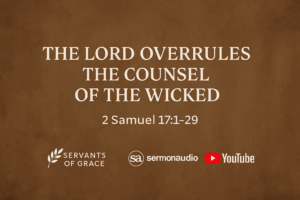⏱️ Estimated Reading Time: 7 min read
One of the biggest changes in my Christian life happened when I realized in my late teenage years that the Christian life had little to do with the rules and more with the grace of God. Now don’t get me wrong, Christians are expected to behave a certain way but only as a byproduct of the Gospel. I have been in churches where they preached the Gospel but had more rules than the Bible has in it. Such churches major on legalism instead of the Gospel. Churches can say, “I believe the Gospel” and then in practice have a litany of rules for how people can serve, when they can serve, and the list goes on—that it makes it hard to believe at least to me that they believe the Gospel they preach. Such churches major more in my opinion on legalism than the Gospel.
One of the major differences between churches that major on legalism and those that model grace is in the approach the leadership of the Church takes. The senior or lead Pastor of the Church sets the tone for the culture of the Church. If the lead or senior Pastor is servant-minded and seeks to be a servant of the Word of God and to His people that will reflect in the culture of the Church. Such a Church will be marked by glad service of God’s people.
I have attended and served in both types of churches I’ve described above. I’ve noticed in legalistic churches I have often become cold and calculating emphasizing more doctrinal precision and little on love. I’ve noticed in truly grace-centered churches that people feel save to serve and share their hurts, pains and sufferings. In legalistic churches if you don’t phrase things correctly in their mind; you are likely to get rebuked. Doctrinal precision is good but not at the expense of loving God and His people.
Consider John. John’s been serving as a pastoral intern for the past four months at his local Church. He’s been told that all of his activities have been good and people have been helped by his service. He makes one mistake in how he handles himself at vacation Bible school and shortly thereafter is called into the pastor’s office. His family has gotten some very tough news and he didn’t handle it well; in fact he broke down in tears. John is called into the pastor’s office and for forty-five minutes he’s reminded of his previous mistakes and told that his pastors haven’t forgotten what has transpired since he’s been at the Church. He was also told about how he failed to be an example to the flock when he broke down and cried. At this meeting there was no mention of anything good he has done nor any attempt to address the hurt he’s felt. At the end of the meeting, the pastors tell John that his internship is over. John leaves the meeting feeling dejected and not cared for. John comes to Church on Sunday and quietly participates as an attendee from the pew. A few weeks later he hears news about his dad and goes to his pastor. His pastor shows very little concern about him.
Perhaps you’ve attended a Church like this or experience a situation very similar to John. Perhaps you’ve been given “feedback” for your service but the person who originally gave the feedback never came to you but instead to your pastor. Like John you sit through the meeting in the pastor’s office. The problem with this type of feedback is it is nowhere seen in the New Testament. If this happens to you rather than gossiping about your pastor behind his back, or to another brother or sister in the congregation, I encourage you to go to your brother or sister and provide helpful feedback that will help them to serve the Lord more effectively.
In churches that are truly grace-centered, doctrinal precision and love are wedded in a beautiful tapestry. In such a Church people feel safe to share their hurts, feelings and opinions with the knowledge that they need to be biblical in what they say. Having attended both types of Churches, I can honestly say I prefer the grace-centered approach. Legalism kills but grace awakens the dead and brings them to new life in Christ. Grace-centered Churches help people address their areas of sin and grow in likeness to Jesus.
Legalism may be one of the biggest issues in the church today—even among Bible believing churches. It is one thing for the Pastor to get up on Sunday preach a perfectly biblical sermon that makes much of Jesus and then another to turn around and act in private in a way that dishonors the Gospel. Pastors and ministry leaders are called to have lives worthy of imitation (1 Corinthians 11:1; 1 Tim. 3:1-7; Heb. 13:17-18). The foibles, sins and struggles of Pastors affect the people in their congregations more than they think. Their character flaws will show up in the culture of the Church and thus by extension affect how people live out their Christian life.
While it is easy to sweep all of this under the rug—the truth is it really matters because the Gospel is the power of God to save and sanctify the people of God. Legalism cripples the Christian life by taking away the place of the Holy Spirit who convicts people of sin and points them to the sufficiency of Jesus. Rather than caring and loving people like Jesus—churches that major on legalism threaten the spiritual healthy and vitality of God’s people.
Preaching is one aspect of the ministry Pastors are called to engage in. Pastors are called to shepherd the flock of God (1 Peter 5:1-5) which means it could be argued that preaching at its core is the result of loving God’s people. After all, the reason we warn people of the fires of hell is because we love them and don’t want to see them go there. On the flip side of this, the reason we comfort those who are hurting, sick and struggling is because we love them and want them to be reassured of the love and comfort of God in the midst of pain, trials and difficulty.
Thankfully, in response to the legalism, the Gospel is superior in every way. Rather than stifling spiritual growth as legalism does—the Gospel transforms from the inside out and sets people ablaze to the glory of God so that they would be compelled to make much of Jesus as His witnesses. Since legalism is a battle that is not going away anytime soon, Christians must proclaim the Gospel all the more because it is the power of God to save and sanctify.
Here’s the good news—the Gospel will ultimately defeat legalism. While we are all prone to legalism at various points in our Christian journey; healthy pastors know that the only way to overcome legalism is not with more rules and laws but more grace. This is why Paul teaches that the grace of God superabounds (Romans 5:20-21). This is why Paul taught that the eyes of our hearts would be illumined so that we may have eyes to see (Ephesians 1:18). The Gospel opens our eyes and gives God’s people eyes to see Him, ears to hear His voice and empowerment to walk the Christian race through the Holy Spirit. Legalism is deadly but the grace of God is superior and amazing. I urge you if you are struggling today with this to run to the God of all grace. He is there before His Throne—waiting for you to come and drink from the well of His superabounding grace.



